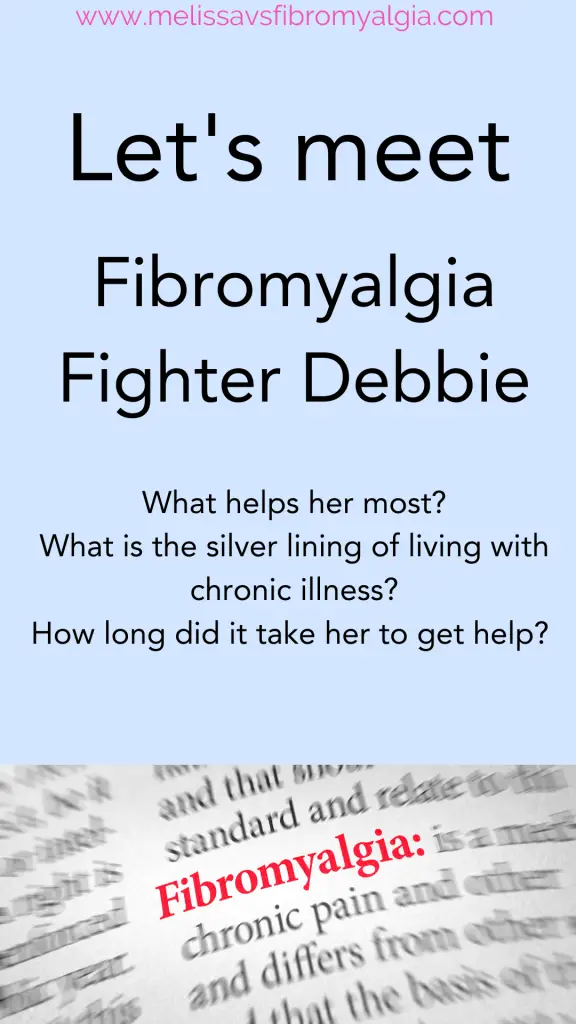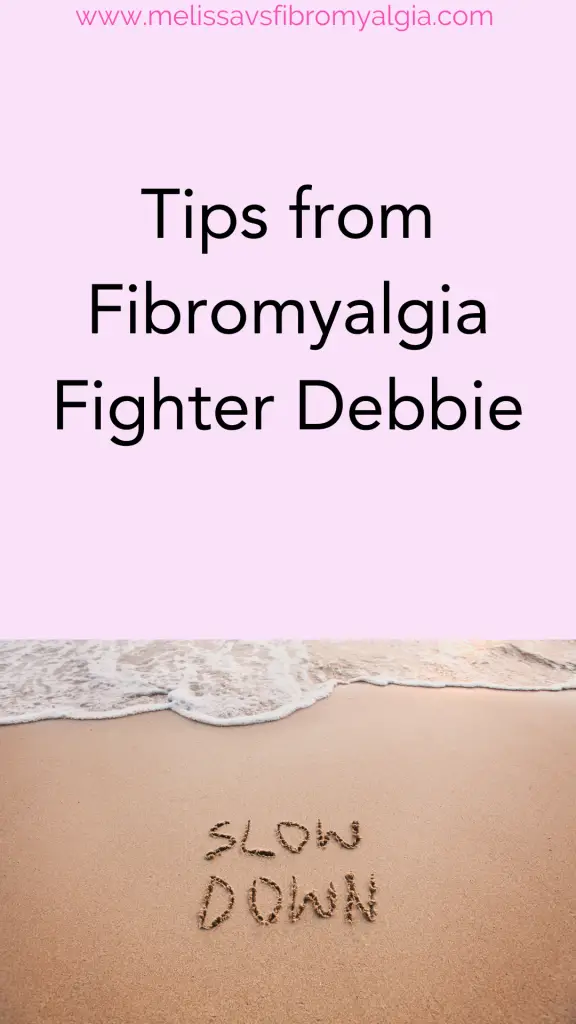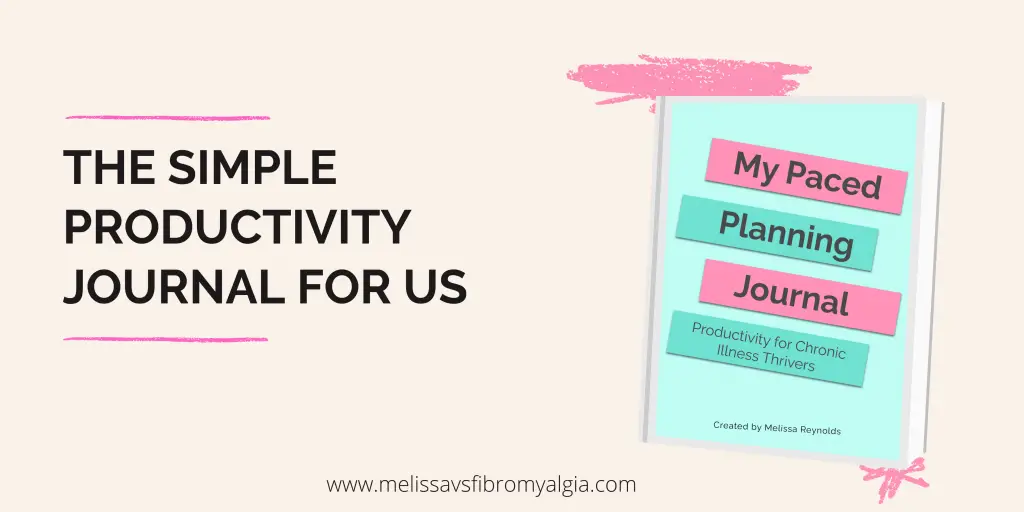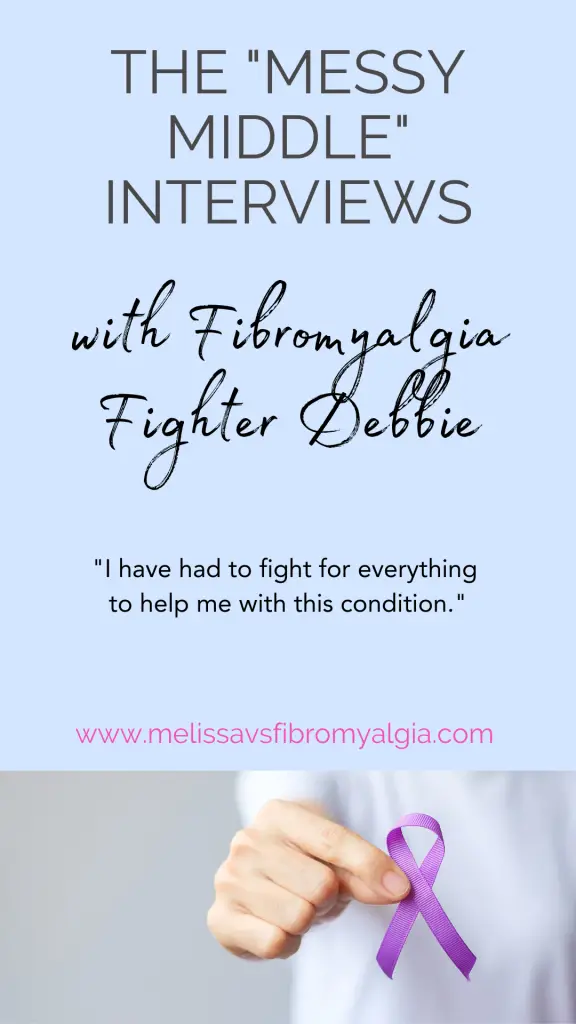I’m loving these Messy Middle Interviews. We are talking with as many people as possible experiencing chronic pain and fatigue. I want to see everyone represented. If you’d like to be featured, you can complete this form here.

Today we are talking to Debbie, a fibromyalgia fighter who has truly had to fight for any help. A single mum who’s got some valuable insights to share with us.
Please introduce yourself – your age, location, familial situation and work situation
My name is Debbie. I am 54 years old. I have one grown up son aged 24 years old. He lives with me and is my carer by default. I work part time. I was unable to work for a number of years after I developed chronic pain and a decline in mental health following trauma.
Unfortunately, I developed agoraphobia and was unable to go outside, on my own for a few years. I managed to get some therapy for this and became more able to go outside than before. Part of my recovery was learning self help techniques and volunteering for activities that I wanted to do to get me outside and managing my pain better. Mindfulness walking has played a big part of this. Some years later, I was diagnosed with fibromyalgia and put on medication to help with that.
Please outline your condition/s, how long you’ve been diagnosed and your experience in brief
I have a few mental health conditions including chronic pain and fibromyalgia. It took years for me to be diagnosed with fibromyalgia, and I was diagnosed when GPs became able to do so. I have had to fight for everything to help me with this condition.
I developed chronic pain in 2010, alongside PTSD, agoraphobia and panic disorder. I already had suffered periods of depression and anxiety and other health issues throughout my life. It took about 5 years or more to be diagnosed with fibromyalgia, and it’s only withing the past couple of years that I’ve been referred to specialists at hospital clinics for further help at my insurance through my GP. Even that has been very hit and miss due to the long term effects on waiting time due to COVID.
I feel like my age may be a contributing factor, as I’ve known younger people get referred on much more quickly. Or else, doctors just want to give you pain medication rather than refer you to hospital clinics. My experience has been life changing. My pain management and energy levels are very much dictated by my fibromyalgia symptoms day to day. My sleep has been the most detrimentally affected, which in has affected my healing and my symptoms day to day. I haven’t slept well for more than 10 years, and can’t remember when I didn’t wake up in pain every few hours. I remember a doctor once asking me how many hours sleep did I get? When I told them 3-4 hours at a time on a good day. Then maybe another 3. They replied that’s good when you add it up! I was gob smacked. They had no clue how unhelpful broken sleep is. Or, whether it was deep sleep or not.

What is a silver lining of living with chronic illness?
The silver lining is that I am stronger than I think I am. Also that I appreciate living in this moment far more than I ever did before. I know that I am not alone, although life can feel very lonely living with chronic illnesses. I am not prepared to give up on things getting better. I want more than to just exist or survive this illness.
What is a particularly difficult part, for you, of living with chronic illness/this journey?
It’s particularly difficult to get the right help for this condition on the NHS. It’s particularly difficult to deal with pain management day to day. Also, the illness can make you feel very lonely or like a burden to others because it’s so isolating.
What is your favourite form of self-care?
Forms of heat therapy help me like a warm bath with lavender oil or bath salts, a heated neck wrap or a heated electric under blanket. I like to snuggle under a soft micro fleece blanket on the sofa. I like to smell lavender aromatherapy oils or candles. Sometimes I just need a dark room and my duvet and peace and quiet. Other times I need to walk in the park and practice mindfulness.
What is your best tool for pain management?
Medication, meditation and pacing myself.
Grab your free Yoga Nidra meditation and four other yoga for fibromyalgia classes here.
What is your best tool for fatigue management?
Pacing myself, eating and drinking well and resting after activity every day.
How do you manage the competing demands in life with your health?
On a day to day basis, I do what I can when I can. Most of the time I do the basics of balancing life and health.

If you have had biological children, how did you experience pregnancy?
I was in full good health when I had my son. However, my body changed physiologically after I had my son. I developed conditions that were new to me like asthma and other allergies.
If you have children, how did you get through the first year?
I was a single parent and I worked full time. In the first year I had severe post natal depression.
Anything else you’d like to share or say?
The best thing you can do is arm yourself with knowledge and understand that your journey is your own. Fibromyalgia affects every person differently. So find out what help is available and tailor it to your own needs.
Thank you so much for sharing your journey Debbie.

